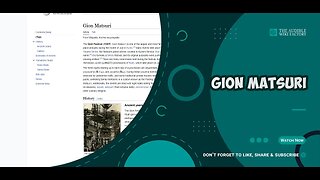Wilhelm Richard Wagner was a German composer, theatre director, polemicist, and conductor who
Wilhelm Richard Wagner was a German composer, theatre director, polemicist, and conductor who is chiefly known for his operas (or, as some of his mature works were later known, "music dramas"). Unlike most opera composers, Wagner wrote both the libretto and the music for each of his stage works. Initially establishing his reputation as a composer of works in the romantic vein of Carl Maria von Weber and Giacomo Meyerbeer, Wagner revolutionised opera through his concept of the Gesamtkunstwerk ("total work of art"), by which he sought to synthesise the poetic, visual, musical and dramatic arts, with music subsidiary to drama. He described this vision in a series of essays published between 1849 and 1852. Wagner realised these ideas most fully in the first half of the four-opera cycle Der Ring des Nibelungen (The Ring of the Nibelung).
His compositions, particularly those of his later period, are notable for their complex textures, rich harmonies and orchestration, and the elaborate use of leitmotifs—musical phrases associated with individual characters, places, ideas, or plot elements. His advances in musical language, such as extreme chromaticism and quickly shifting tonal centres, greatly influenced the development of classical music. His Tristan und Isolde is sometimes described as marking the start of modern music.
Wagner had his own opera house built, the Bayreuth Festspielhaus, which embodied many novel design features. The Ring and Parsifal were premiered here and his most important stage works continue to be performed at the annual Bayreuth Festival, run by his descendants. His thoughts on the relative contributions of music and drama in opera were to change again, and he reintroduced some traditional forms into his last few stage works, including Die Meistersinger von Nürnberg (The Mastersingers of Nuremberg).
Until his final years, Wagner's life was characterised by political exile, turbulent love affairs, poverty and repeated flight from his creditors. His controversial writings on music, drama and politics have attracted extensive comment – particularly, since the late 20th century, where they express antisemitic sentiments. The effect of his ideas can be traced in many of the arts throughout the 20th century; his influence spread beyond composition into conducting, philosophy, literature, the visual arts and theatre.
EARLY YEARS
Richard Wagner was born to an ethnic German family in Leipzig, who lived at No 3, the Brühl (The House of the Red and White Lions) in the Jewish quarter on 22 May 1813. He was baptized at St. Thomas Church. He was the ninth child of Carl Friedrich Wagner, who was a clerk in the Leipzig police service, and his wife, Johanna Rosine (née Paetz), the daughter of a baker. Wagner's father Carl died of typhoid fever six months after Richard's birth. Afterwards, his mother Johanna lived with Carl's friend, the actor and playwright Ludwig Geyer. In August 1814 Johanna and Geyer probably married—although no documentation of this has been found in the Leipzig church registers. She and her family moved to Geyer's residence in Dresden. Until he was fourteen, Wagner was known as Wilhelm Richard Geyer. He almost certainly thought that Geyer was his biological father.
Geyer's love of the theatre came to be shared by his stepson, and Wagner took part in his performances. In his autobiography Mein Leben Wagner recalled once playing the part of an angel. In late 1820, Wagner was enrolled at Pastor Wetzel's school at Possendorf, near Dresden, where he received some piano instruction from his Latin teacher. He struggled to play a proper scale at the keyboard and preferred playing theatre overtures by ear. Following Geyer's death in 1821, Richard was sent to the Kreuzschule, the boarding school of...
LINK TO ARTICLE: http://en.wikipedia.org/wiki/Richard_Wagner
TAGS: Richard Wagner, Romanticism, People of the Revolutions of 1848, People educated at the St. Thomas School Leipzig, People educated at the Kreuzschule, Opera managers, Musicians from Leipzig, Musicians from Dresden, Music in Bavaria, Leipzig University alumni, German theatre directors, German Romantic composers, German opera librettists, German opera directors, German nationalism, German music critics, German essayists, German male classical composers, German opera composers, German male conductors (music), German conductors (music), German autobiographers, 19th-century theatre, 19th-century German male musicians, 19th-century German composers, 19th-century conductors (music), 19th-century classical composers, Richard Wagner
#GeneralKnowledge #AudibleWikiFactory #Audible #Wikipedia #RichardWagner
-
 6:00
6:00
The Audible Wiki Factory
1 year agoThe Gion Festival is one of the largest and most famous festivals in Japan, taking place
342 -
 25:27
25:27
Degenerate Plays
12 hours agoThe Microtransaction Master - Call Of Duty Modern Warfare Remastered : Part 3
8.31K2 -
 21:03
21:03
MYLUNCHBREAK CHANNEL PAGE
15 hours agoOld World Minnesota?
13.1K30 -
 5:49:05
5:49:05
Akademiks
21 hours agoDrake Next Move - Whats next?? Did Lil Baby Listen to Me? Diddy and Family Preparing for Indictment?
68K53 -
 1:56:06
1:56:06
TimcastIRL
1 day agoTrump Raises RECORD $52.8 MILLION In One Day, Bonus Uncensored Show w/Laura Loomer | Timcast IRL
88.2K379 -
 23:19
23:19
Scammer Payback
4 days agoWe Created the First Ever 𝗔𝗡𝗧𝗜-𝗦𝗖𝗔𝗠 Call Center
209K247 -
 1:11:09
1:11:09
LFA TV
22 hours agoTRUMP GUILTY…OF LOVING AMERICA! Ft. Hayley Caronia & Vish Burra | LAST CALL 6.1.24 8PM EST
73.9K32 -
 1:02:02
1:02:02
The Kirk Minihane Show
14 hours ago420 Show
51.6K2 -
 1:06:35
1:06:35
Patriots With Grit
13 hours agoSpeaking Up, Pushing Back | Daniel McGirr
47.4K7 -
 56:19
56:19
Total Horse Channel
2 days ago2024 Buckeye Reining Series | Saturday Night | 7:30 pm EST
54.7K5